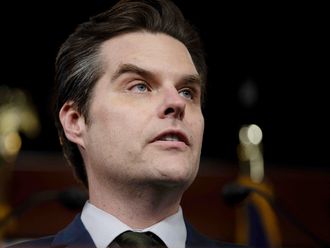
Washington: President Joe Biden is directing the US government to take a sweeping approach to artificial intelligence regulation, his most significant action yet to rein in an emerging technology that has sparked both concern and acclaim.
The lengthy executive order, released on Monday, sets new standards on security and privacy protections for AI, with far-reaching impacts on companies. Developers such as Microsoft Corp., Amazon.com Inc and Alphabet Inc.’s Google will be directed to put powerful AI models through safety tests and submit results to the government before their public release.
The rule, which leverages the US government’s position as a top customer for big tech companies, is designed to vet technology with potential national or economic security risks, along with health and safety. It will likely only apply to future systems, not those already on the market, a senior administration official said.
The initiative also creates infrastructure for watermarking standards for AI-generated content, such as audio or images, often referred to as “deepfakes.” The Commerce Department is being asked to help with the development of measures to counter public confusion about authentic content.
The administration’s action builds on voluntary commitments to securely deploy AI adopted by more than a dozen companies over the summer at the White House’s request and its blueprint for an “AI Bill of Rights,” a guide for safe development and use.
All 15 companies that signed on to those commitments, including Adobe Inc. and Salesforce Inc., will join the president at a signing ceremony at the White House on Monday, along with members of Congress.
Microsoft views the order as “another critical step forward in the governance of AI technology,” Vice Chairman and President Brad Smith said in a statement.
Biden’s directive precedes a trip by Vice-President Kamala Harris and industry leaders to attend a UK-hosted summit about AI risks, giving her a US plan to present on the world stage.
The US set aside $1.6 billion in fiscal 2023 for AI, a number that’s expected to increase as the military releases more detail about its spending, according to Bloomberg Government data.
“This executive order sends a critical message: that AI used by the United States government will be responsible AI,” International Business Machines Corp. Chairman and Chief Executive Officer Arvind Krishna said in a statement.
Against bias
Biden also called for guidance to be issued that safeguards Americans from algorithmic bias in housing, government benefits programs and by federal contractors.
The Justice Department warned in a January filing that companies that sell algorithms to screen potential tenants are liable under the Fair Housing Act if they discriminate against Black applicants. Biden directed the department to establish best practices for investigating and prosecuting such civil-rights violations related to AI, including in the criminal justice system.
The order also asks immigration officials to lessen visa requirements for overseas talent seeking to work at American AI companies.
The administration should ensure that the order is implemented in an effective and timely manner, said Jordan Burris, who previously worked on the US government’s tech and cyber initiatives, including a Trump administration executive order on AI.
“There is incredible complexity associated with the follow-on activities to make sure that it actually hits the intended outcome,” said Burris, now vice president and head of public-sector strategy at Socure, said. Resources, training and education efforts are necessary to execute the guidance, he said.
While the administration is touting its latest actions as the government’s most robust advancement of AI regulation, Congress may go further.
Biden has called on lawmakers to pass privacy legislation, though he doesn’t yet have a position on how Congress should approach comprehensive regulation of AI, the administration official said.
Senate Majority Leader Chuck Schumer called for the US to spend at least $32 billion in the coming years to boost AI research and development.
Lawmakers have been holding briefings and meeting with tech representatives, including Meta Platforms Inc.’s Mark Zuckerberg and OpenAI’s Sam Altman, to better understand the technology before drafting legislation. Venture capitalists Marc Andreessen and John Doerr have also participated in the closed-door meetings.








